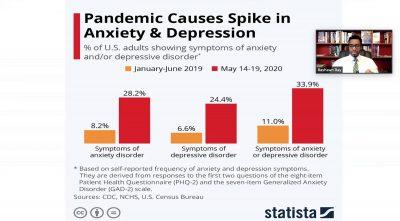The United States is averaging more than 121,000 cases of COVID-19 a day — higher than any other country, according to The New York Times. As the nation’s case count climbs to 27 million total, many hope President Joe Biden will instate new strategies to combat the virus.

Boston University’s School of Public Health hosted a panel of health, medical and sociology experts Thursday to discuss efforts in public policy to potentially slow the spread of the coronavirus.
Areas of discussion ranged from immigration reform to racial and equity issues that have defined the U.S’ struggle with the pandemic.
Panelist Elena Fuentes-Afflick is the chief of pediatrics at the Zuckerberg San Francisco General Hospital.
Fuentes-Afflick’s expertise focuses on Latino and immigrant health and general health disparities, as well as faculty development and misconduct. At the event, she spoke of large-scale policy reform and data collection needed for documented and undocumented immigrants to receive adequate medical treatment.
“We need to collect data on birthplace and other aspects of the immigrant experience,” Fuentes-Afflick said, “so that we know how many immigrants do we have, in what categories do they fall, what are the unique health risks and health outcomes that we need to consider.”
Fuentes-Afflick stressed the importance of giving immigrant populations adequate access to health care because they make up a significant proportion of workers in the United States.
“In the next 20 years, she said, “it is estimated that immigrants will be essential for replacing retirees who are aging out.”
Fuentes-Afflick proposed an expansion of Medicaid coverage for immigrants as an effective way to reform health care nationwide — Biden has already taken action on the issue by sending the U.S. Citizenship Act of 2021 to Congress and including individuals without documentation in the census.
“There are many gaps between what we know and what we need to know about immigrant health, there’re policy changes that can be enacted,” she said. “I’m very hopeful that under the new administration, we will have meaningful improvements in immigrant health.”
Rashawn Ray, professor of sociology at the University of Maryland, spoke of the challenges pressing the African American community during the pandemic and the institutional health disparities rampant in the United States.
“It’s really about the way the structural conditions undergird pre-existing health conditions,” Ray said at the event.
He pointed to six systemic issues that create the unequal health outcomes in the pandemic for Black Americans, including a greater likelihood of living in densely populated areas that make social distancing challenging, working as essential employees and lacking access to health care and equitable care. These conditions, he said, must be addressed.
“We have to continue to do a better job of collecting comprehensive data,” he said. “We also have to have testing and vaccine disseminations in predominantly Black neighborhoods. In particular, using Black churches, barber shops, community centers, hair salons.”
Economic relief is needed to support local, Black-owned businesses that have been impacted by the economic challenges of the pandemic, and have not received adequate assistance, Ray said. He added that these disparities collide to form “multiple pandemics” within these communities.
“We need equitable small business administration and payment protection program funding,” Ray said. “We know that 41 percent of Black small businesses have closed during COVID because they are significantly less likely to get this funding.”
Black Americans also have concerns with the COVID-19 vaccine. Ray said memories of the Tuskegee Institute Study, Henrietta Lacks and the Guatemala syphilis experiment that subjugated people of color to cruel medical trials still weigh on people’s minds. He said going forward, social media messaging and transparency are crucial to securing their trust.
“We have to continue to be transparent about the vaccine, and I think a lot of that has been happening,” Ray said. “When things go wrong, just say that they’re wrong and say that we’re aiming to correct these particular issues.”
Along with racial and health inequality, there are still pressing concerns for a united, global effort to combat the coronavirus, said Jon Kindsdale, an associate professor of the practice in health law, policy and management at SPH.
Kingsdale said cooperating with other nations is essential because national health cannot be achieved until global health is achieved first.
“We need to be a lot more aggressive globally,” Kingsdale said in an interview. “So many of our problems are now global, whether it’s climate or pandemics or war, that the need for really strong global institutions has never been greater.”
Kingsdale added that although the Biden administration will not be able to resolve every health-related problem, they should strengthen their bonds with other countries through global institutions.
“The Biden administration would be well-advised to pick their fights carefully,” he said. “We’re not going to be able to solve every issue or address every issue, but move to strengthen these institutions.”
Ricardo Vallejo, a junior in the College of Arts and Sciences, said he is more pleased with Biden’s handling of the pandemic than former president Donald Trump’s, but he is still concerned about Biden’s economic response.
“He just campaigned adamantly that he would provide $2,000 [relief] checks,” Vallejo said in an interview. “At this point in time, he’s advocating for $1,400 checks on top of the $600 that Congress had already passed earlier this year. I think in that particular issue, he’s definitely been lacking.”
Although Biden has not fulfilled some of his campaign promises, Vallejo said he is still somewhat optimistic that health conditions will improve with the new administration.
“I think Biden does have a lot of potential to do a lot of good,” Vallejo said. “But we’ll see what happens throughout the year.”











































































































